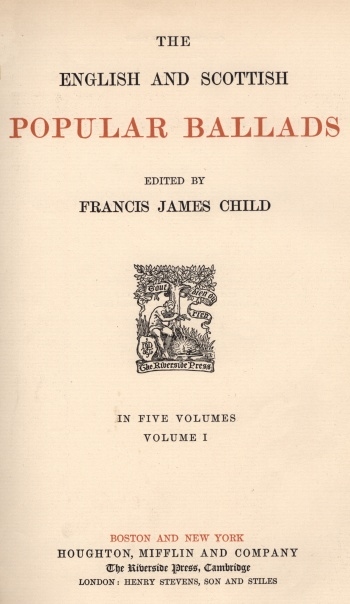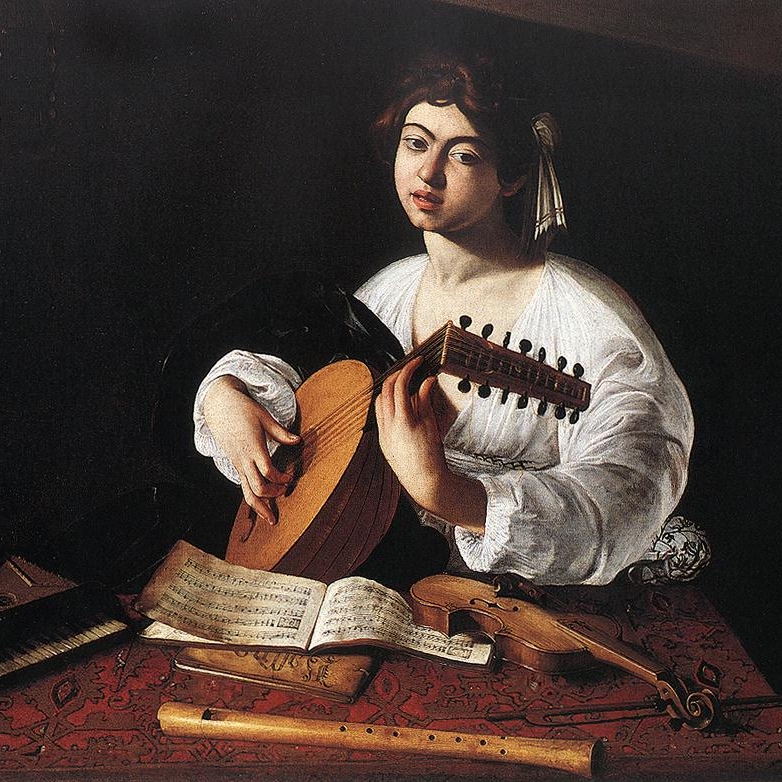In order to preserve the historical integrity of the ballads in this section they are presented in their original dialects, which span a broad range. These ballads have been passed down through the centuries from many different regions of Great Britain before appearing in print. A synopsis of each ballad, in modern American English, is provided to aid in ease of comprehension of the dialects.
"It's a narrow, narrow make your bed,
And learn to lie your lane;
For I'm ga'n oer the sea, Fair Annie,
A braw bride to bring hame.
Wi her I will get gowd and gear;
Wi you I neer got nane.
"But wha will bake my bridal bread,
Or brew my bridal ale?
And wha will welcome my brisk bride,
That I bring oer the dale?"
"It's I will bake your bridal bread,
And brew your bridal ale,
And I will welcome your brisk bride,
That you bring oer the dale."
"But she that welcomes my brisk bride
Maun gang like maiden fair;
She maun lace on her robe sae jimp,
And braid her yellow hair."
"But how can I gang maiden-like,
When maiden I am nane?
Have I not born seven sons to thee,
And am with child again?"
She's taen her young son in her arms,
Another in her hand,
And she's up to the highest tower,
To see him come to land.
"Come up, come up, my eldest son,
And look oer yon sea-strand,
And see your father's new-come bride,
Before she come to land."
"Come down, come down, my mother dear,
Come frae the castle wa!
I fear, if langer ye stand there,
Ye'll let yoursell down fa."
And she gaed down, and farther down,
Her love's ship for to see,
And the topmast and the mainmast
Shone like the silver free.
And she's gane down, and farther down,
The bride's ship to behold,
And the topmast and the mainmast
They shone just like the gold.
She's taen her seven sons in her hand,
I wot she didna fail;
She met Lord Thomas and his bride,
As they came oer the dale.
"You're welcome to your house, Lord Thomas,
You're welcome to your land;
You're welcome with your fair ladye,
That you lead by the hand.
"You're welcome to your ha's, ladye,
You're welcome to your bowers;
You're welcome to your hame, ladye,
For a' that's here is yours."
"I thank thee, Annie; I thank thee, Annie,
Sae dearly as I thank thee;
You're the likest to my sister Annie
That ever I did see.
"There came a knight out oer the sea,
And steald my sister away;
The shame scoup in his company,
And land whereer he gae!"
She hang ae napkin at the door,
Another in the ha,
And a' to wipe the trickling tears,
Sae fast as they did fa.
And aye she served the lang tables,
With white bread and with wine,
And aye she drank the wan water,
To had her colour fine.
And he's taen down the silk napkin,
Hung on a silver pin,
And aye he wipes the tear trickling
A' down her cheik and chin.
And aye he turn'd him round about,
And smil'd amang his men;
Says, "Like ye best the old ladye,
Or her that's new come hame?"
When bells were rung, and mass was sung,
And a' men bound to bed,
Lord Thomas and his new-come bride
To their chamber they were gaed.
Annie made her bed a little forbye,
To hear what they might say;
"And ever alas!" Fair Annie cried,
"That I should see this day!
"Gin my seven sons were seven young rats,
Running on the castle wa,
And I were a grey cat mysell,
I soon would worry them a'.
"Gin my seven sons were seven young hares,
Running oer yon lilly lee,
And I were a grew hound mysell,
Soon worried they a' should be."
And wae and sad Fair Annie sat
And drearie was her sang,
And ever, as she sobbd and grat,
"Wae to the man that did the wrang!"
"My gown is on," said the new-come bride,
"My shoes are on my feet,
And I will to Fair Annie's chamber,
And see what gars her greet.
"What ails ye, what ails ye, Fair Annie,
That ye make sic a moan?
Has your wine barrels cast the girds,
Or is your white bread gone?
"O wha was't was your father, Annie,
Or wha was't was your mother?
And had ye ony sister, Annie,
Or had ye ony brother?"
"The Earl of Wemyss was my father,
The Countess of Wemyss my mother;
And a' the folk about the house
To me were sister and brother.
"If the Earl of Wemyss was your father,
I wot sae was he mine;
And it shall not be for lack o gowd
That ye your love sall tine.
"For I have seven ships o mine ain,
A' loaded to the brim,
And I will gie them a' to thee,
Wi four to thine eldest son:
But thanks to a' the powers in heaven
That I gae maiden hame!"
The ballad Fair Annie appears in Volume II of The English and Scottish Popular Ballads, edited by Francis James Child. These volumes are in the public domain.

The Child Ballads are 305 traditional ballads from England and Scotland, and their American variants, anthologized by Francis James Child during the second half of the 19th century. ... Read more at Wikipedia.

Ballads were particularly characteristic of the popular poetry and song of the British Isles from the later medieval period until the 19th century. ... Read more at Wikipedia.